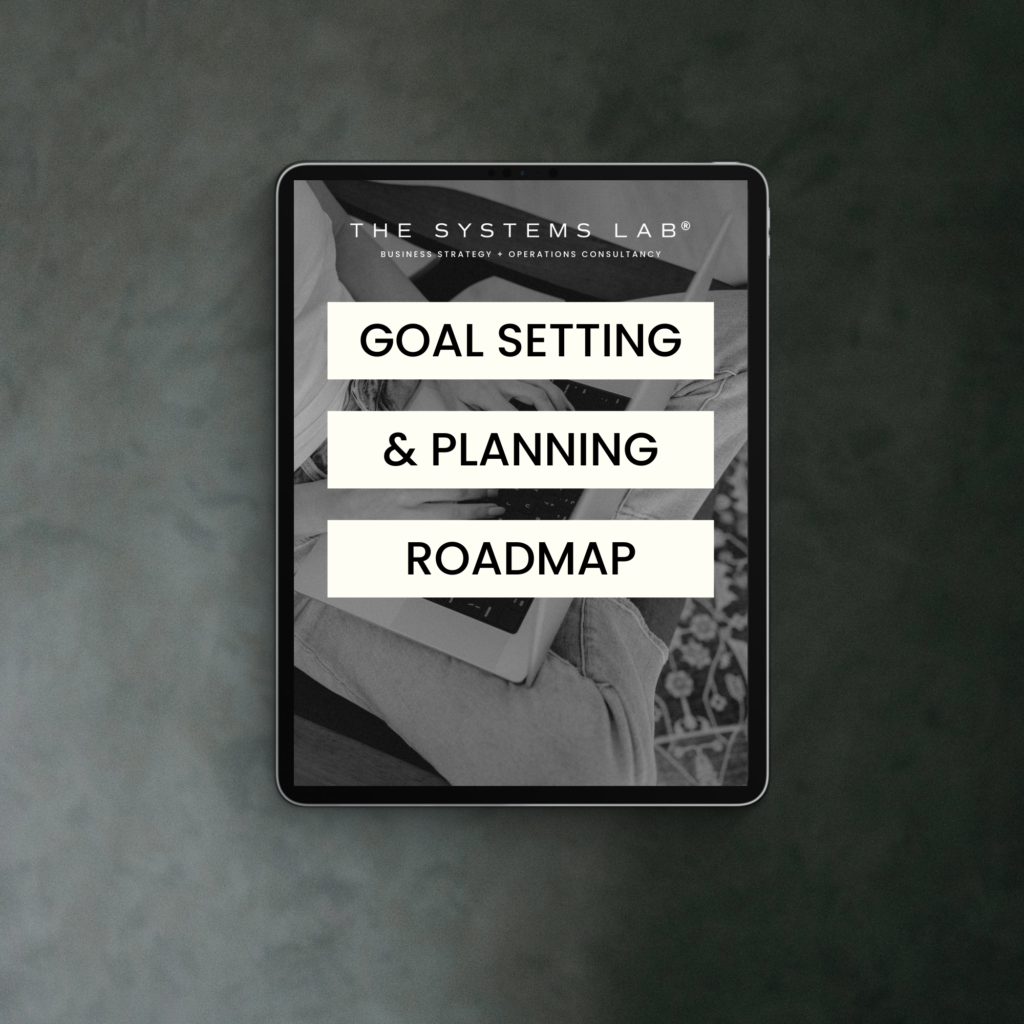
As an online business owner, one thing is clear – success doesn’t happen by accident. Behind every thriving business is a well-thought-out strategy guiding the way. No matter when you’re reading this, now is always the perfect time to start planning for your business’s future.
But let’s be real, many entrepreneurs delay their strategy planning, leaving them playing catch-up when they could be getting ahead. It’s time to change that. In this blog, we’ll talk about why having a documented business strategy is essential and how it sets you up for long-term success.
So let’s jump right in and learn how to build a strategy that works for you, whenever you start!
What is a Business Strategy?
The Importance of Developing a Strong Business Strategy
Alright, let’s break it down! So, what exactly is a business strategy?
Let’s start with the basics: a business strategy is your roadmap to success. It’s the plan that outlines where your business is heading and how you’re going to get there.
A business strategy is your north star keeping you on track.
Your business strategy covers everything from setting your vision and defining your goals, to identifying your target audience and mapping out your path to growth. It helps you make informed decisions, manage your resources, and stay on course even when challenges arise.
Without a strategy, you’re flying blind. But with one in place, you’ll have the clarity and confidence to move your business forward.
Defining the Business Strategy
Your business strategy encompasses your vision, mission, values, and the actions you’ll take to fulfil them. Your strategy provides the big picture, outlining the direction you want to go, and the steps you’ll take to get there.
Setting Goals and Aligning Your Strategy
One of the most crucial parts of a business strategy is goal setting. But it’s not just about writing down a list of things you want to accomplish. It’s about aligning those goals with your vision and breaking them down into actionable steps.
Step 1: Set Your Vision
Your vision is the big-picture idea of what you want your business to achieve. It’s your long-term direction, something that might take years to fully realise. When setting your vision, think beyond the day-to-day tasks and focus on the impact you want to create.
Step 2: Define Goals
Once your vision is clear, it’s time to define specific, measurable goals that align with that vision. For example, if your vision is to be the go-to consultant in your niche, a goal might be to increase your client base by 20% in 2025. Each goal should be realistic, measurable, and tied directly to your long-term vision.
Step 3: Create Actionable Plans
his is where the magic happens – breaking your goals down into actionable steps. A solid business strategy not only outlines your vision and goals but also includes a detailed plan of how you’ll achieve them. This includes creating a quarterly plan and 90-day targets to keep you on track throughout the year. That way, you know exactly what you need to focus on at any given time, making sure your daily tasks align with your broader goals
Take away the guesswork with our free step-by-step Goal Setting & Planning Roadmap. Click here to download.
Identify Your Target Audience and Niche
Understanding your target audience and carving out a niche is critical. Your business strategy allows you to identify your ideal customers, their pain points, and how your services or products can address their needs uniquely. By honing in on your niche, you can position yourself as an expert in your field, differentiate yourself from competitors, and build a loyal customer base.
Assess the Competition
A solid business strategy requires thorough analysis of your competitors. By analysing your competitors’ strengths, weaknesses, and market positioning, you can identify opportunities for differentiation and innovation. This understanding allows you to fine-tune your offering and create a value proposition that stands out in the crowd.
Resources
A well-thought-out business strategy helps you make informed decisions about the resources you need. From budgeting to time management, it allows you to prioritise your efforts and allocate resources wisely. By focusing on activities that generate the highest return on investment and aligning them with your strategic objectives, you maximise your chances of success while optimising your resources.
Adapt to Change
Business is constantly changing, and so should your strategy. One of the biggest benefits of having a solid plan is the flexibility it gives you. When market trends shift or new opportunities arise, your strategy can be adjusted to keep your business moving forward.
Build a Strong Brand
A wA well-defined business strategy is critical to building a strong brand. Your strategy guides you in crafting a brand identity that resonates with your target audience. It helps you clarify your brand values, personality, and unique selling proposition.
By aligning your brand messaging, visuals, and customer experience with your strategy, you create a consistent and memorable brand presence. A strong brand not only attracts customers but also creates trust and loyalty, setting you apart from the competition.
Monitor and Measure Progress
An effective business strategy involves monitoring and measuring your progress towards your goals. By setting key performance indicators (KPIs) and regularly tracking them, you gain valuable insights into the effectiveness of your strategies and tactics.
This data-driven approach allows you to identify what’s working well and what needs improvement. You can make data-backed decisions, make adjustments to your plans, and optimise your efforts for better results. Continuous monitoring and measurement enable you to stay accountable and ensure that you’re on the right path to achieving your business objectives.
The Importance of a Documented Strategy
So… why does it matter if your strategy is written down? Because a documented strategy gives you a roadmap you can refer back to time and time again. It holds you accountable, keeps you focused, and helps you avoid getting distracted by the day-to-day busyness of running a business.
When your strategy is written down, it’s easier to track your progress, make adjustments when needed, and ensure that you’re staying aligned with your goals. It also provides a clear reference point for making business decisions, helping you stay on course even when unexpected challenges pop up.
In Summary
Let’s face it; we’re not in this for short-term success. We’re aiming for a long-lasting impact and a sustainable, predictable business. So, while others may experience fleeting moments of triumph, we’re here for the long haul.
So, take the time to create a strategy that works for you. Whether you’re starting fresh or refining your current plan, the right strategy will keep you focused and on track to reach your full potential.
If you want simple strategies to help you grow your business, sign up for our weekly ‘Simply Systems’ newsletter below, where we share the latest tips, tools, and strategies to help your business thrive.

Get your FREE Goal Setting & Planning Roadmap
Related
How to Create a 90-Day Plan for Your Business
The Essential Guide to Writing Mission, Vision and Values
Change Your Strategy Not Your Goals
© The Systems Lab® 2024. All rights reserved.
Comments +